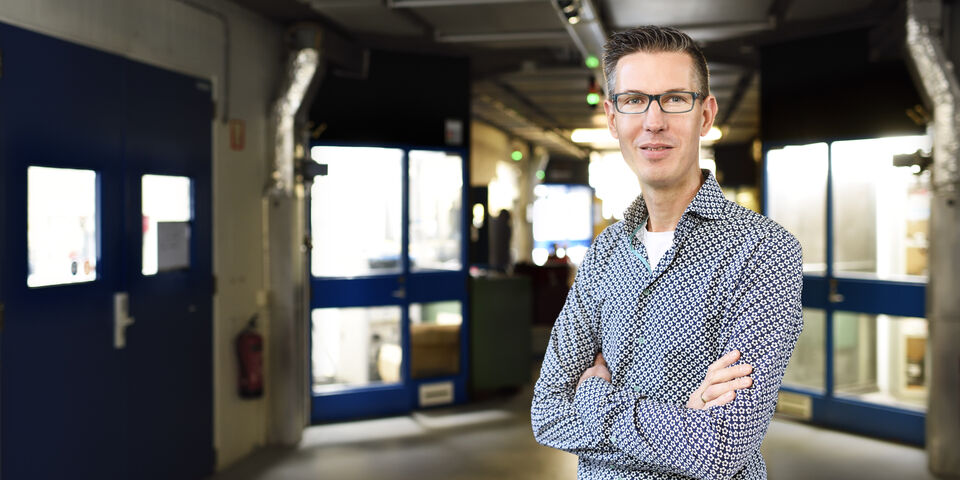The brand-new professor has not only made a jump on the academic ladder as of January 1; he has also changed departments. That latter step is smaller than it may seem, Deen emphasizes. “At Chemical Engineering and Chemistry I was involved with process technology, which is also the common factor in this new group. Leading a larger group is a bigger change, but I’m also ready for that.”
In process technology there is always a prominent role for applications, which goes for Deen’s work as well. Hence he calls himself a chemical engineer, “engineer being the operative word”. His main feat in Eindhoven is the project he funded with a European Starting Grant, as he explains. “I’ve been working on an improved version of the bubble column. This is a large reactor vessel with liquid which you want to bring into contact with a gas, in order to exchange substances. We have improved its operation by cutting the bubbles up into smaller bubbles by means of a kind of chicken wire.” Despite the success of that project he is not going to take that research line along to Mechanical Engineering. “That is research which I have really carried out jointly with Hans Kuipers, and it would be very odd indeed if I were to copy the same work at Mechanical Engineering now. It has to stay with chemistry. Although it pains me a lot to let go of it, I have every confidence that it will be continued properly in my old group.”
Deen is first going to talk to all the group members at his ease, before deciding on a new course for his group. Nevertheless he does already want to give an example of a research line that is obvious. The idea is coming from Philip de Goey, and concerns ‘metal fuels’. Deen: “You can use metals as fuel for trucks and ships, instead of diesel. After all, iron filings can also be burnt; by doing so you create rust particles and in this process a lot of energy is generated.” This fuel is environmentally friendly when you convert the rust particles into iron filings again by means of clean energy.
The metal fuels are still in their infancy, says Deen. “Even so, at the Canadian McGill university they have already gathered a good deal of experience with it. In February we will hold a workshop here for which we have also invited people from that university, in order to see how we can get started with this. The great thing is that there are many different aspects about it, such as combustion technology, of course, but also transport phenomena and multiphase flows. That makes it a pre-eminent subject to which almost everybody in our group can contribute.”


Discussion